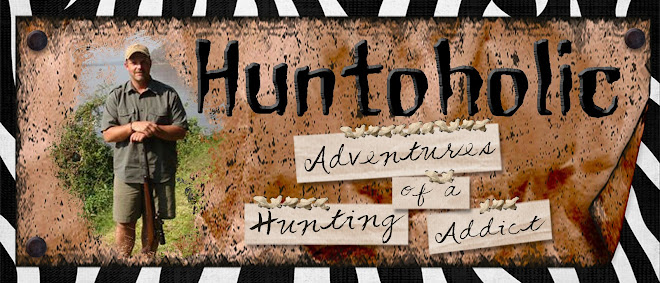
Interestingly, the bulls and cows on the Zambian side of the river were less wary than those on the Zimbabwe side. The pods on the Zambian side would typically stand on the shore and watch us and the pontoon boat motor up the river. Conversely, those on the Zimbabwe side would immediately slide into the water at the slightest sound of an oncoming boat. Possibly, the ones on the Zimbabwian side are more harassed by larger number of villagers and hunters. Once the pods are in the water, they can remain for many hours with only their nostrils and eyes protruding from the water.
I was fortunate to take a nice bull out of the river, and glad we didn't have to gamble finding one of these river bulls out of the river. The problem, as I understand it, with shooting a bull in the river is recovering it. Once shot, the bull will sink and will surface only after several hours, and not until the enzymes in the stomach created enough gas for necessary buoyancy. The problem for the hunter comes when the hippo is anywhere near the current of the river. By the time the bagged trophy surfaces, the current may have carried him several miles down river. In our case, we were hunting so near the Mozambique boarder, that it would have been likely that the trophy, after taken, could slip downstream, across an international boarder and into a state of impossible recovery.

This bull was feeding in the reeds while we were fishing for a day upon our arrival into the Zambezi Valley, I love the photo and the menacing look of the hippo. In reality, he was heading quickly for the safety of the water before we could approach any closer in the boat.








